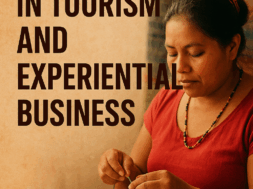Health & Wellness Industry: Opportunities and Trends in 2025

The health and wellness industry has become one of the fastest-growing sectors globally. With people shifting toward holistic living, self-care, and preventive health, the demand for fitness training, natural skincare, and herbal remedies continues to rise. In 2025, entrepreneurs have countless opportunities to build profitable businesses that improve lives while generating sustainable income.
Fitness Training Businesses
Types of Fitness Ventures
Fitness remains a cornerstone of wellness. Entrepreneurs can choose from personal training, group classes, gym sessions, or online coaching. Virtual fitness has become especially popular, with platforms like Zoom, Instagram Live, and YouTube Fitness offering low-cost ways to connect with clients.
Popular Niches
Trainers are finding success by focusing on specific niches. Yoga, HIIT, dance fitness, weight training, and even home-friendly workouts are among the most in-demand options. These niches allow entrepreneurs to target audiences looking for personalized and convenient solutions.
Monetization
Revenue can be generated through memberships, subscription-based programs, or corporate wellness initiatives. By building a personal brand and leveraging social media, fitness professionals can create long-term income streams.
Natural Skincare Businesses
Rising Demand
Consumers are increasingly rejecting chemical-heavy skincare in favor of natural, organic alternatives. This shift has created opportunities for entrepreneurs to produce affordable and eco-friendly skincare solutions.
Popular Products
Natural skincare staples like shea butter, African black soap, essential oils, and herbal creams are in high demand. These products can be locally sourced, making them cost-effective for startups.
Sales & Compliance
Entrepreneurs can sell their products through Etsy, Shopify, and Instagram Shops, as well as local beauty outlets. However, it’s vital to meet skincare certification and safety standards to build trust and credibility.
Herbal Products & Remedies
Market Growth
The demand for herbal remedies continues to rise as people seek natural alternatives for health and wellness. Herbal teas, supplements, and tonics are among the fastest-growing categories.
Best-Selling Herbs
Popular herbs like moringa, hibiscus, ginger, turmeric, and neem have gained recognition for their health benefits. These can be transformed into teas, powders, capsules, or skincare infusions.
Business Setup
Entrepreneurs must comply with local regulations and market their products responsibly, focusing on education rather than unverified medical claims. Distribution can be expanded through pharmacies, health stores, or subscription box models.
Building a Health & Wellness Brand
Trust & Credibility
In wellness businesses, trust is everything. Customers need assurance that products are safe, authentic, and effective. Building transparency through branding, testimonials, and certifications is key.
Marketing Channels
Social media plays a major role in the success of wellness businesses. Platforms like TikTok and Instagram Reels are powerful tools for sharing quick fitness routines, skincare tips, and herbal remedies. Collaborating with influencers also boosts credibility and reach.
Future Trends
The future of wellness is being shaped by technology and sustainability. AI-driven wellness apps, wearable tech like Fitbit and Apple Health, and plant-based products will dominate the market in 2025.
Challenges & Solutions
Key Challenges
Entrepreneurs in the health and wellness space often face challenges such as strict certification requirements, strong competition from established brands, balancing affordability with quality, and ensuring reliable supply chains. Gaining consumer trust in such a sensitive industry can also be difficult.
Possible Solutions
The best way to overcome these hurdles is through quality, transparency, and education. Providing clear product information, sourcing ethically, and engaging with customers directly can help new businesses thrive.
Expanding Opportunities in Health & Wellness 2025
The global health & wellness market has grown into a multi-trillion-dollar industry, driven by rising consumer awareness and the desire for healthier lifestyles. In 2025, this sector is not just about physical health but also emotional well-being, preventive care, and sustainable living. Entrepreneurs who innovate in these areas can tap into both local and international markets.
Fitness Training Businesses: Deep Dive
Corporate Wellness Programs
With workplace stress at an all-time high, companies are investing in wellness initiatives to boost employee productivity. Fitness trainers can collaborate with corporations to offer online workout sessions, mindfulness programs, and nutrition coaching as part of corporate wellness packages.
Digital Fitness Platforms
Platforms like Peloton, MyFitnessPal, and Strava have shown how digital communities can transform fitness. Entrepreneurs can create their own mobile apps with subscription models, offering video workouts, progress tracking, and diet plans.
Hybrid Fitness Models
Combining in-person classes with online streaming gives trainers flexibility and scalability. This hybrid approach ensures they don’t lose clients who prefer at-home convenience.
Natural Skincare Businesses: Growth Drivers
Eco-Friendly Packaging
Modern consumers don’t just care about what’s inside the product; they also care about the packaging. Using biodegradable or reusable packaging not only reduces environmental impact but also appeals to eco-conscious buyers.
Personalized Skincare
AI and data-driven analysis are enabling brands to provide customized skincare solutions. Startups can offer skin quizzes, virtual consultations, and tailor-made formulas to build loyalty.
Influencer Collaborations
Micro-influencers in the beauty space have a strong impact on purchasing decisions. Partnering with influencers for tutorials, product reviews, and giveaways can rapidly increase brand visibility.
Herbal Products & Remedies: Market Potential
Subscription Boxes
Curated monthly boxes featuring herbal teas, supplements, and natural remedies can help businesses build recurring revenue. Personalizing these boxes based on customer preferences boosts satisfaction.
Educational Marketing
Since herbal products often face skepticism, businesses can use blogs, YouTube channels, or podcasts to educate consumers on benefits, usage, and sourcing. This approach positions the brand as both a seller and a trusted advisor.
Global Export Potential
Countries with rich herbal traditions (such as Ghana, India, and China) have an opportunity to export moringa, hibiscus, and turmeric-based products worldwide. Meeting international safety standards unlocks access to lucrative foreign markets.
Building a Health & Wellness Brand: Practical Steps
Storytelling & Authenticity
A compelling brand story helps small businesses stand out. Sharing why a founder started a skincare line or fitness coaching business builds emotional connections with customers.
Content Marketing
Offering free guides, meal plans, fitness routines, or skincare tutorials builds trust and increases organic traffic. Wellness blogs, podcasts, and YouTube channels also act as strong lead generators.
Influencer & Community Engagement
Beyond big influencers, community-driven engagement is powerful. Hosting wellness events, online challenges, or social media giveaways helps brands grow organically.
Future Innovations
- Wearable health tech: Smartwatches and AI-driven wellness apps.
- Plant-based living: Vegan diets, supplements, and eco-beauty products.
- Virtual wellness: Meditation and therapy sessions via apps.
- Biohacking & longevity: Nootropics, genetic testing, and advanced nutrition.
Challenges & Long-Term Solutions
Regulatory Hurdles
Navigating the certification and licensing process is often complex. Businesses must invest in proper compliance early on to avoid legal setbacks.
Intense Competition
The wellness industry is saturated with both startups and established giants. Differentiation through niche focus (e.g., organic skincare for sensitive skin or herbal teas for students) helps new players survive.
Raw Material Supply
Sourcing herbs and organic ingredients consistently can be difficult due to weather, import restrictions, or rising costs. Building strong supplier relationships and exploring local farms can reduce risks.
Consumer Trust
Health is personal, and trust is non-negotiable. Transparency in labeling, clear product sourcing, and third-party testing certifications help businesses gain credibility.
The Future of Health & Wellness in 2025
The health & wellness industry in 2025 presents some of the most exciting entrepreneurial opportunities. From fitness coaching and skincare products to herbal remedies and digital wellness apps, the potential is vast for those who combine authenticity with innovation.
Entrepreneurs who focus on quality, transparency, and customer engagement will not only grow profitable businesses but also contribute to healthier and more sustainable communities. The future belongs to brands that embrace technology, eco-conscious practices, and holistic wellness solutions.
Emerging Niches in the Health & Wellness Industry
Mental Wellness Businesses
Mental health is no longer a taboo subject—it’s now a central part of the global wellness conversation. Entrepreneurs can explore:
- Meditation apps offering guided sessions.
- Online therapy platforms connecting clients with licensed therapists.
- Mindfulness coaching for stress relief and productivity.
The growth of platforms like Calm and Headspace shows how digital tools can make mental wellness accessible and profitable.
Nutrition & Healthy Food Services
As people become more health-conscious, nutrition-focused businesses are thriving. Opportunities include:
- Meal prep services delivering healthy food to busy professionals.
- Vegan & plant-based restaurants catering to eco-conscious diners.
- Juice and smoothie bars focusing on organic ingredients.
Pairing nutrition services with fitness or herbal products can create powerful wellness ecosystems.
Technology’s Role in Health & Wellness
Wearables & Data Tracking
Wearable tech like Fitbit, Apple Watch, and Oura Ring are empowering people to monitor sleep, fitness, and heart health. Entrepreneurs can create apps that integrate with these devices to provide personalized coaching and recommendations.
AI & Personalization
AI-driven platforms are reshaping wellness. From recommending personalized skincare routines to suggesting customized workout plans, artificial intelligence allows businesses to scale personalization at a low cost.
Virtual & Augmented Reality
- VR fitness games make workouts more engaging.
- AR skincare apps let users test products virtually before purchase.
- VR meditation retreats offer immersive experiences from home.
This tech-driven approach gives startups a competitive edge while appealing to younger, digital-savvy audiences.
Global Trends Shaping the Industry
Holistic Wellness
Consumers want mind-body balance, meaning businesses that combine physical, mental, and spiritual well-being will gain momentum. Yoga studios offering nutrition counseling or skincare brands promoting mindfulness are examples of this integrated approach.
Sustainable & Ethical Practices
Sustainability is a non-negotiable. Customers prefer eco-friendly packaging, cruelty-free testing, and ethical sourcing. Transparency in supply chains can even become a brand’s unique selling point.
Inclusive Wellness
Brands are moving beyond one-size-fits-all. The future of wellness will include diverse body types, skin tones, age groups, and cultural perspectives. Entrepreneurs who design inclusive products and services will stand out.
Case Studies: Inspiring Success Stories
Glossier (Natural Beauty)
Started as a blog, Glossier grew into a billion-dollar skincare and makeup company by leveraging community feedback and social media marketing. This shows how storytelling and authenticity can power growth.
Peloton (Fitness Innovation)
By combining hardware, software, and community, Peloton turned at-home fitness into a lifestyle brand. Entrepreneurs can learn from its ability to merge technology with human connection.
Herbalife (Herbal Products)
Though controversial at times, Herbalife’s global success proves the demand for herbal supplements. With the right compliance and transparency, herbal businesses can scale internationally.
Actionable Tips for Entrepreneurs in 2025
- Start Small, Scale Fast – Begin with a focused niche (e.g., organic soaps or online HIIT coaching) and expand once you gain traction.
- Leverage Digital Platforms – Use Instagram Reels, TikTok health tips, YouTube tutorials, and blogs to build an audience before launching products.
- Invest in Branding – Packaging, storytelling, and a consistent online presence differentiate small businesses from larger competitors.
- Offer Value Before Sales – Free content (recipes, workouts, skincare tips) builds trust and authority.
- Build Communities, Not Just Customers – Online groups, wellness challenges, and loyalty programs create long-term engagement.
Final Thoughts
The Health & Wellness industry in 2025 is more than just a trend—it’s a lifestyle revolution. Entrepreneurs who focus on fitness, natural skincare, herbal remedies, mental health, and sustainable wellness solutions have unlimited opportunities to thrive.
The keys to success are authenticity, innovation, and adaptability. Those who embrace technology, prioritize customer trust, and align with future wellness trends will not only grow profitable ventures but also play a meaningful role in improving global well-being.
Conclusion
The health and wellness industry in 2025 is full of opportunities for creative and passionate entrepreneurs. From fitness training and natural skincare to herbal remedies, the possibilities are endless. Success in this industry requires building trust, embracing innovation, and staying ahead of trends. Entrepreneurs who focus on value, authenticity, and customer satisfaction will not only grow their businesses but also make a positive impact on people’s lives.

















